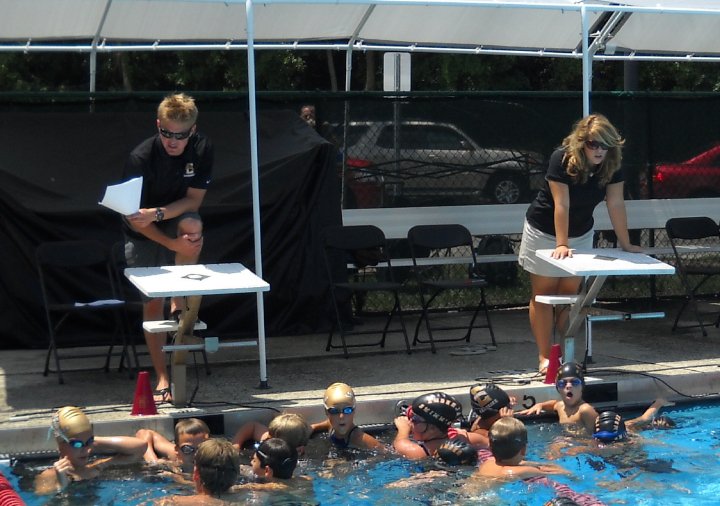 What makes a good goal?
What makes a good goal?
- Goals should be written, challenging, believable (by you), specific, measurable and usually have a specific deadline.
- Not all goals must be lofty (sometimes easy to achieve goals are good ways to help you take steps to a more challenging goal).
- Most swimming goals need to have a deadline, however, they can carry over from season to season and you can have on-going goals.
Long-Term vs. Short-Term Goals
- Both long-term and short-term goals are important to have.
- Long-term goals may be years down the line whereas a short-term goal may be the current week of training or the next swim meet.
- It’s good to spread out the due dates of your goals (especially in swimming as the season progresses).
- It’s okay to adjust your goals as you go.
Tips for Setting Your Goals
- It’s okay to work on a number of goals all at once (takes pressure off of the challenging goals and sometimes smaller goals can be used along the way to promote self-confidence and help you get closer to the more difficult goals).
- Break big pieces of goals into small steps
- List relevant obstacles that may get in your way, discourage you or keep you from achieving your goal. (Avoid discussion of your goals with naysayers, even if they are family).
- Solicit encouragement from others you trust and respect to help you stay motivated to attain your goals.
- Do not base your goals on what other people think. In swimming, discuss your goal with your coach in order to make sure he/she is aware of it so they can train and motivate you to achieve that goal.
- DON’T STOP!………..even if you get sidetracked or discouraged, do not stop!
What if I cannot complete my goal?
- Do not get discouraged. Recognize partial accomplishments because by striving for the goal you are improving yourself.
- Use your personal support group to keep you on task and encouraged.
- Internalize the lesson of perseverance. Many amazing accomplishments in this world came from people who never gave up in spite of all odds against them.
- Do not allow yourself to become the person that accomplishes 50% of a lot of things but 100% of nothing because you gave up.
How to deal with fear of failure
- The only true failure is the failure to attempt or giving up without full effort. (i.e. In basketball, you do not make 100% of the shots you never take).
- By trying but not succeeding, you still become a better person with more knowledge and experience than you ever had before, making you more prepared for the next goal you will attempt.
- Missed deadlines, setbacks, unexpected challenges, changing priorities and feeling discouraged are not failures! You only fail if you quit on your goal.
Getting stuck on one goal
- Having more than one goal is a good idea because it increases your accomplishments.
- Do not let one goal consume you, especially if it is a challenging one. Break that goal down into smaller, more manageable parts to help you achieve it.
- Focus on other goals and stay persistent with the goal you may feel stuck on. Remember, missed deadlines are not failures …….. re-evaluate that goal and try again.
Rewards yourself
- When you achieve a goal, it’s okay to enjoy it and appreciate that sense of accomplishment.
- If you put a lot of hard work into achieving a goal, you better take the time to enjoy it before you move on to the next goal.
- There is nothing wrong with being proud of yourself and using that pride to help you set new and more challenging goals in the future.
- When you achieve a goal, you do not have to be satisfied, but you definitely should be happy.





